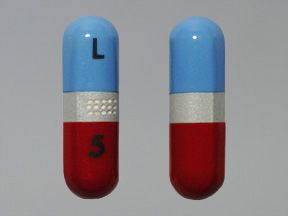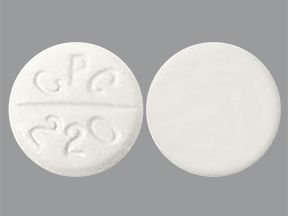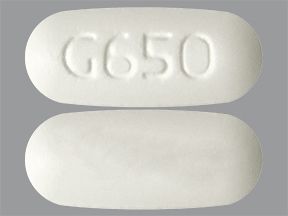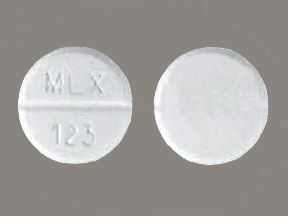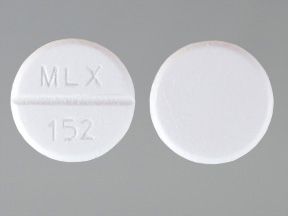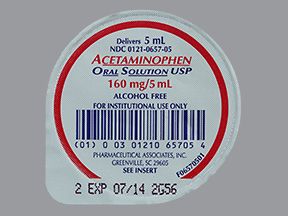Acetaminophen is a generic, over-the-counter (OTC) drug. It’s used for the following purpose in adults and certain children:
- to relieve minor aches and pains, such as headaches or muscle aches
- to reduce fever
Because acetaminophen is available OTC, your doctor does not need to give you a prescription for it. However, they may recommend that you take the drug to relieve pain or reduce fever.
For more information, see the “Acetaminophen oral forms uses” section below.
Drug details
Acetaminophen belongs to a class of drugs called analgesics. It comes in the following oral forms and strengths:
- oral liquid: 160 milligrams per 5 milliliters (mg/mL)
- chewable tablet: 160 mg
- oral tablet: 325 mg
- oral capsule: 325 mg
- oral powder: 160 mg
Acetaminophen is also available OTC as a rectal suppository, but this article does not cover this form. It is also available as a prescription in an IV injection. However, this article focuses on the OTC oral forms of the drug. Your doctor can tell you more about these other forms.
Brand-name versions
The oral forms of acetaminophen are the generic versions of the brand-name drug Tylenol in the United States.
Acetaminophen rectal suppositories are available under a different brand name. For information on this version, talk with your doctor or pharmacist.
Acetaminophen is a generic drug. A generic drug is an exact copy of the active drug in a brand-name medication. Acetaminophen is based on the brand-name medication Tylenol.
A generic is considered to be as safe and effective as the original drug. Generics tend to cost less than brand-name drugs.
If you’re interested in using Tylenol instead of acetaminophen, talk with your doctor. They can tell you if Tylenol comes in forms and strengths suitable for your condition. If you have insurance, you’ll also need to check whether your plan will cover Tylenol.
To learn more about how generics compare with brand-name drugs, see this article.
Here are answers to some frequently asked questions about acetaminophen.
Is acetaminophen an NSAID like ibuprofen?
No, acetaminophen is not a nonsteroidal anti-inflammatory drug (NSAID). Examples of NSAIDs include ibuprofen (Advil, Motrin) and naproxen (Aleve).
Acetaminophen belongs to a class of drugs called analgesics.
Both acetaminophen and NSAIDs can relieve pain or reduce fever. However, acetaminophen and NSAIDs work differently in the body.
To learn more about how acetaminophen compares with NSAIDS, talk with your doctor or pharmacist.
How does acetaminophen compare with other similar drugs, such as paracetamol or aspirin?
Below are a few ways acetaminophen compares with other similar drugs.
Acetaminophen is an analgesic drug used to relieve pain or reduce fever. It is available over-the-counter (OTC), meaning your doctor does not need to give you a prescription for it.
In countries outside of the United States, acetaminophen is known as paracetamol. It’s available under multiple brand names, including Tylenol.
Nonsteroidal anti-inflammatory drugs (NSAIDs) also relieve pain or reduce fever. Several NSAIDs are available OTC, including:
- aspirin
- ibuprofen (Advil, Motrin)
- naproxen (Aleve)
Like acetaminophen, the NSAIDs listed above come in several oral forms. If you’re interested in using an NSAID instead of acetaminophen, talk with your doctor. They can tell you if any NSAIDs come in strengths and forms that are suitable for you.
Is there a daily limit of acetaminophen? How much of the drug can I take each day?
Yes, there is a limit to the amount of acetaminophen that’s considered safe to take each day. Doses above the daily limit can lead to liver damage.
The toxic dose of acetaminophen can vary for adults and children. It also depends on guidance from the drug’s manufacturer and the form of acetaminophen you take.
The following table lists the maximum daily doses for each oral form of acetaminophen. However, refer to the manufacturer’s instructions to determine how much acetaminophen each dose contains.
| Form of acetaminophen | Max daily dose for adults | Max daily dose for children |
| oral liquid | 5 doses | 5 doses |
| chewable tablet | not provided by the manufacturer | 5 doses |
| oral tablet | 10 tablets | 5 tablets |
| oral capsule | 10 capsules | 5 capsules |
| oral powder | not provided by the manufacturer | 5 doses |
To learn more about acetaminophen’s dosages, see the “Acetaminophen oral forms dosage” section below.
Your doctor or pharmacist can provide you with more details about acetaminophen’s maximum dose. You can also view the label information for acetaminophen oral liquid, chewable tablet, oral tablet, oral capsule, and oral powder.
Can acetaminophen make you sleepy or raise your blood pressure?
Below are details about whether acetaminophen may cause sleepiness or high blood pressure.
Acetaminophen is not known to cause sleepiness. This side effect was not reported in the label information for acetaminophen oral liquid, chewable tablet, oral tablet, oral capsule, or oral powder.
Keep in mind that some forms of acetaminophen, such as Tylenol PM, also contain an antihistamine. These products do cause sleepiness. However, it is the antihistamine that causes the drowsiness, not the acetaminophen. Examples of antihistamines include doxylamine (Unisom) and diphenhydramine (Benadryl).
It is possible for acetaminophen to increase blood pressure in certain people. This side effect was not reported in the label information for acetaminophen oral forms. However, a recent
It is unknown whether acetaminophen may increase blood pressure in people who do not already have high blood pressure. Your doctor or pharmacist can tell you more about your risk of high blood pressure with acetaminophen.
To learn more about side effects that may occur with this drug, see “Acetaminophen oral forms side effects” below.
Will acetaminophen make you feel ‘high’?
Acetaminophen is not known to cause euphoria (feeling ‘high’ or extremely happy). This side effect was not reported in the label information for acetaminophen oral liquid, chewable tablet, oral tablet, oral capsule, or oral powder.
Keep in mind that acetaminophen is also available in combination with opioids, such as the prescription medication oxycodone/acetaminophen (Percocet). These drugs are used to treat severe pain. Opioids may cause euphoria as a side effect. However, it is the opioid that causes the euphoria, not acetaminophen itself.
To learn more about side effects of this drug, see the “Acetaminophen oral forms side effects” section below.
Acetaminophen can cause mild or serious side effects (also known as adverse effects). The following lists contain some of the key side effects that may occur while taking acetaminophen. These lists do not include all possible side effects.
For more information about the possible side effects of acetaminophen, talk with your doctor or pharmacist. They can give you tips on how to manage any side effects that may concern or bother you.
Note: The Food and Drug Administration (FDA) tracks side effects of drugs it has approved. If you would like to notify the FDA about a side effect you’ve had with acetaminophen, you can do so through MedWatch.
Mild side effects
Mild side effects of acetaminophen can include mild allergic reaction (see “Allergic reaction” below).
To learn about other mild side effects, talk with your doctor or pharmacist. You can also view the label information for acetaminophen oral liquid, chewable tablet, oral tablet, oral capsule, or oral powder.
Most of these side effects may go away within a few days to a couple of weeks. However, if they become more severe or don’t go away, talk with your doctor or pharmacist.
Serious side effects
Serious side effects from acetaminophen aren’t common, but they can occur. Call your doctor right away if you have serious side effects. Call 911 or your local emergency number if your symptoms feel life threatening or if you think you’re having a medical emergency.
Serious side effects can include:
- liver damage
- severe allergic reaction*
* For details about allergic reaction and acetaminophen, see “Allergic reaction” below.
ALLERGIC REACTIONAs with most drugs, some people can have an allergic reaction after taking acetaminophen. This side effect was reported in the label information for acetaminophen oral liquid, chewable tablet, oral tablet, oral capsule, and oral powder. However, it isn’t known how common this side effect was in clinical trials of acetaminophen.
Symptoms of a mild allergic reaction can include:
A more severe allergic reaction is rare but possible. Symptoms of a severe allergic reaction can include:
- swelling under your skin, typically in your eyelids, lips, hands, or feet
- swelling of your tongue, mouth, or throat
- trouble breathing
Call your doctor right away if you have an allergic reaction to acetaminophen, as the reaction could become severe. Call 911 or your local emergency number if your symptoms feel life threatening or if you think you’re having a medical emergency.
The acetaminophen dosage your doctor recommends will depend on several factors. These include:
- the reason you’re using acetaminophen
- your age
- body weight (in children)
- the form of acetaminophen you take
The following information describes dosages that are commonly used or recommended. However, be sure to take the dosage your doctor recommends for you. Your doctor will determine the best dosage to fit your needs.
Dosage for minor aches and pains for adults
Here’s acetaminophen dosage information for minor aches and pains.
| Acetaminophen for minor aches and pains | |
| Forms (see note) | • oral liquid • oral tablet • oral capsule |
| Strengths | • oral liquid: 160 milligrams per 5 milliliters (mg/mL) • oral tablet: 325 mg • oral capsule: 325 mg |
| Dose | • oral liquid: 640 mg (20 mL) • oral tablet: 650 mg (two tablets) • oral capsule: 650 mg (two capsules) |
| How often | • oral liquid: every 4 hours as needed for up to 10 days • oral tablet: every 4 to 6 hours as needed for up to 10 days • oral capsule: every 4 to 6 hours as needed for up to 10 days |
| Administered by | self |
Note: Acetaminophen also comes as chewable tablets and oral powder. However, the manufacturers of these forms have not provided adult dosages for minor aches and pains. If you’re interested in using these forms of acetaminophen, talk with your doctor. They can advise you on the right dosage.
Dosage for fever reduction for adults
Here’s acetaminophen dosage information for fever reduction.
| Acetaminophen for fever reduction | |
| Forms (see note) | • oral liquid • oral tablet • oral capsule |
| Strengths | • oral liquid: 160 mg/5 mL • oral tablet: 325 mg • oral capsule: 325 mg |
| Dose | • oral liquid: 640 mg (20 mL) • oral tablet: 650 mg (two tablets) • oral capsule: 650 mg (two capsules) |
| How often | • oral liquid: every 4 hours as needed for up to 3 days • oral tablet: every 4 to 6 hours as needed for up to 3 days • oral capsule: every 4 to 6 hours as needed for up to 3 days |
| Administered by | self |
Note: Acetaminophen also comes as chewable tablets and oral powder. However, the manufacturers of these forms have not provided adult dosages for reducing fever. If you’re interested in using these forms of acetaminophen, talk with your doctor. They can advise you on the right dosage.
Infant and pediatric dosage
The dosage of acetaminophen for infants and children varies depending on the form of acetaminophen used. It also depends on the child’s age and weight. The child’s doctor can recommend the exact dosage of acetaminophen for them.
You can also find dosing details in the label information for acetaminophen oral liquid, chewable tablet, oral tablet, oral capsule, or oral powder.
What if I miss a dose?
Typically, you only take acetaminophen when you need to relieve pain or reduce fever.
If you miss a dose that you meant to take, do not take extra doses or two doses at the same time to make up for it.
To help make sure that you don’t miss a dose, try using a medication reminder. This can include setting an alarm or using a timer. You could also download a reminder app on your phone.
Will I need to use this drug long term?
Acetaminophen is typically used as a short-term treatment. Your doctor can advise you how long to take acetaminophen based on your specific condition.
You may wonder how acetaminophen compares with other medications that doctors may recommend for similar uses. To find out how acetaminophen compares with ibuprofen (Advil, Motrin), see this article.
The Food and Drug Administration (FDA) approves over-the-counter (OTC) drugs such as acetaminophen for certain conditions. Because acetaminophen is available OTC, your doctor does not need to give you a prescription for it. However, they may recommend that you take the drug for certain purposes.
Acetaminophen for minor aches and pains
Acetaminophen relieves minor aches and pains in adults and certain children.
Minor aches and pains explained
With minor aches and pains, you may have painful or uncomfortable feelings in your body. These may occur for various reasons, such as injury or illness.
Below are examples of conditions that may cause minor aches and pains:
- headache
- back or muscle issues
- toothache
- arthritis
- period cramps
- sore throat
- flu or other infections, such as the common cold
Acetaminophen for fever reduction
Acetaminophen reduces fever in adults and certain children.
Fever explained
With fever, your body temperature is above its usual range of 98°F to 100°F (36°C to 37°C). This may occur for a few reasons, including infection.
In addition to high body temperature, other symptoms of fever can include:
- flushing
- sweating
- feeling warm to the touch
Acetaminophen and children
Acetaminophen can relieve pain and reduce fever in certain children. To learn about these conditions, see “Acetaminophen for minor aches and pains” and “Acetaminophen for fever reduction” above.
Children ages 2 years and older can take acetaminophen oral liquid and chewable tablets. Children ages 6 years and older can take acetaminophen oral tablets, oral capsules, and oral powder.
Acetaminophen can interact with several other medications. However, it’s not known to interact with supplements or foods.
Different interactions can cause different effects. For instance, some interactions can interfere with how well a drug works. Other interactions can increase side effects or make them more severe. Drug-condition interactions can also cause certain effects. For information about these interactions, see the “Acetaminophen precautions” section below.
Acetaminophen and other medications
Before taking acetaminophen, talk with your doctor and pharmacist. Tell them about all prescription, over-the-counter, and other drugs you take. Also, tell them about any vitamins, herbs, and supplements you use. Sharing this information can help you avoid potential interactions.
Below is a table of medications that can interact with acetaminophen. This table does not contain all drugs that may interact with acetaminophen.
| Medication type or medication name | Medication examples |
| warfarin (Jantoven) | — |
Your doctor or pharmacist can provide you with more information about the interactions between this medication and acetaminophen. Your doctor or pharmacist can also answer any other questions you have about any drug interactions that may affect you.
Below is important information about taking acetaminophen while pregnant or breastfeeding.
Acetaminophen and pregnancy
According to the American College of Obstetricians and Gynecologists (ACOG), acetaminophen is generally considered safe for use during pregnancy.
However, no medication can be considered 100% safe in pregnancy. If you’re pregnant or planning to become pregnant, talk with your doctor or pharmacist before taking acetaminophen.
Acetaminophen and breastfeeding
ACOG considers acetaminophen to be safe for use during breastfeeding. However, it’s best to talk with your doctor or pharmacist before taking acetaminophen while breastfeeding.
Acetaminophen and birth control
Acetaminophen is considered safe for use during pregnancy.
However, if you’re concerned about becoming pregnant while taking acetaminophen, talk with your doctor. If you’re sexually active and you or your partner can become pregnant, they can advise you on your birth control options while you’re taking acetaminophen.
For more information about taking acetaminophen during pregnancy, see the “Acetaminophen and pregnancy” section above.
It may not be safe to drink large amounts of alcohol while taking acetaminophen. Specifically, drinking more than 3 alcoholic beverages per day can increase your risk of liver damage as a side effect of the drug.
If you drink alcohol, talk with your doctor before taking acetaminophen. They can tell you whether there’s a safe amount of alcohol to consume while taking the drug.
When your pharmacist dispenses acetaminophen, they will add an expiration date to the label on the packaging. This date is typically 1 year from the date they dispensed the medication.
The expiration date helps guarantee that the medication is effective during this time. The
Storage
How long a medication remains good can depend on many factors, including how and where you store the medication.
You can store acetaminophen oral liquid at a temperature of 59°F to 86°F (15°C to 30°C). You should not store the drug in the freezer. Be sure to store the oral liquid away from light.
You’ll store acetaminophen chewable tablets and oral tablets at a temperature of about 77°F (25°C). You can temporarily store them at a temperature of 59°F to 86°F (15°C to 30°C), such as while traveling. Do not store them in areas of high humidity.
Store acetaminophen oral capsules at a temperature between 68°F and 77°F (20°C to 25°C) and oral powder at room temperature.
Keep all oral forms of acetaminophen in a tightly sealed container. Avoid storing them in areas where they could get damp or wet, such as bathrooms.
Disposal
If you no longer need to take acetaminophen and have leftover medication, it is important to dispose of it safely. This helps prevent others, including children and pets, from taking the drug by accident. It also helps keep the drug from harming the environment.
This article provides several useful tips on medication disposal. You can also ask your pharmacist for information about how to dispose of your medication.
Acetaminophen is available over-the-counter (OTC), meaning your doctor does not need to give you a prescription for it. However, some OTC drugs may cost less if a doctor prescribes them and a pharmacy charges your insurance for them.
As with all medications, the cost of acetaminophen can vary. The actual price you’ll pay depends on your insurance plan, your location, and the pharmacy you use.
To find out if your insurance covers acetaminophen with a prescription, contact your insurance company.
Financial and insurance assistance
Financial assistance to help you pay for acetaminophen may be available.
Medicine Assistance Tool and NeedyMeds are two websites offering resources that may help decrease the price you pay for acetaminophen. They also offer tools to help you find low-cost healthcare, as well as educational resources. To learn more, visit their sites.
Mail-order pharmacies
You may be able to get acetaminophen through a mail-order pharmacy. Using this service may help lower the drug’s cost and allow you to get your medication without leaving home.
If you’re interested in this option, check with your doctor, pharmacist, or insurance company. Some Medicare plans may help cover the cost of mail-order medications.
If you don’t have insurance, you can ask your doctor or pharmacist about other ways to purchase acetaminophen.
You should take acetaminophen according to the instructions your doctor gives you.
Acetaminophen comes in the following oral forms:
- a liquid that you swallow
- a tablet that you chew and swallow
- a tablet that you swallow whole
- a capsule that you swallow whole
- a powder that dissolves when placed on your tongue
When to take
You’ll likely take acetaminophen every 4 to 6 hours as needed for your specific situation.
To help make sure that you don’t miss a dose, try using a medication reminder. This can include setting an alarm or using a timer. You could also download a reminder app on your phone.
Accessible labels and containers
Sometimes, your doctor may write a prescription for acetaminophen.* Some pharmacies offer labels that have large print, braille, or a code you scan with a smartphone to convert text to speech. If your local pharmacy doesn’t have these options, your doctor or pharmacist may be able to direct you to one that does.
If you have trouble opening medication bottles, ask your pharmacist if they can put acetaminophen in an easy-open container. They also may be able to recommend tools that can make help you open lids.
* See “Acetaminophen oral forms cost” section above for details.
Taking acetaminophen with food
You can take acetaminophen with or without food.
Can acetaminophen be crushed, split, or chewed?
Acetaminophen comes in several oral forms. Do not crush, split, or chew the oral tablets and oral capsules. These forms of the drug should be swallowed whole.
If you have trouble swallowing tablets or capsules, you may be able to take a different oral form of acetaminophen. The drug is also available as an oral liquid, chewable tablet, and oral powder. Your doctor or pharmacist can tell you if these forms of acetaminophen are suitable for your specific situation.
This drug comes with several precautions. These are considered drug-condition interactions.
If any of the following medical conditions or other health factors pertain to you, be sure to talk with your doctor before taking acetaminophen.
- if you’re pregnant or thinking about becoming pregnant
- if you’re breastfeeding or thinking about breastfeeding
- if you’ve had an allergic reaction to either drug or any of its ingredients
- if you have a liver problem, such as liver failure
Note: For more information about the potential negative effects of acetaminophen, see the “Acetaminophen oral forms side effects” section above.
Do not use more acetaminophen than your doctor recommends. For some drugs, doing so may lead to unwanted side effects or overdose.
What to do in case you take too much acetaminophen
If you think you’ve taken too much of this drug, call your doctor. You can also call the American Association of Poison Control Centers at 800-222-1222 or use its online tool. However, if your symptoms are severe, call 911 or your local emergency number, or go to the nearest emergency room right away.
Disclaimer: Medical News Today has made every effort to make certain that all information is factually correct, comprehensive, and up to date. However, this article should not be used as a substitute for the knowledge and expertise of a licensed healthcare professional. You should always consult your doctor or another healthcare professional before taking any medication. The drug information contained herein is subject to change and is not intended to cover all possible uses, directions, precautions, warnings, drug interactions, allergic reactions, or adverse effects. The absence of warnings or other information for a given drug does not indicate that the drug or drug combination is safe, effective, or appropriate for all patients or all specific uses.

